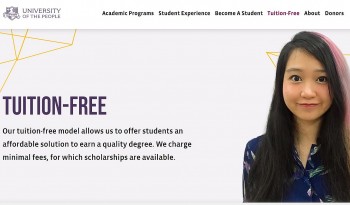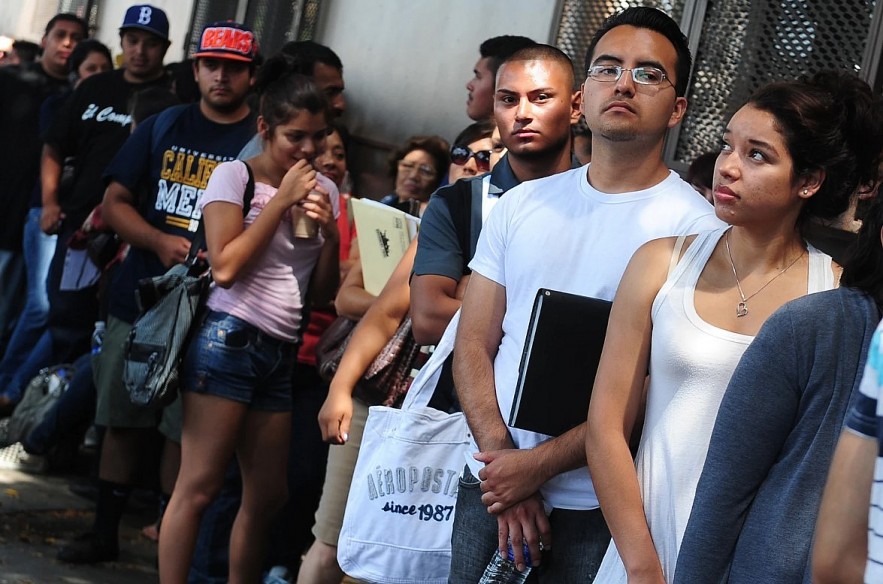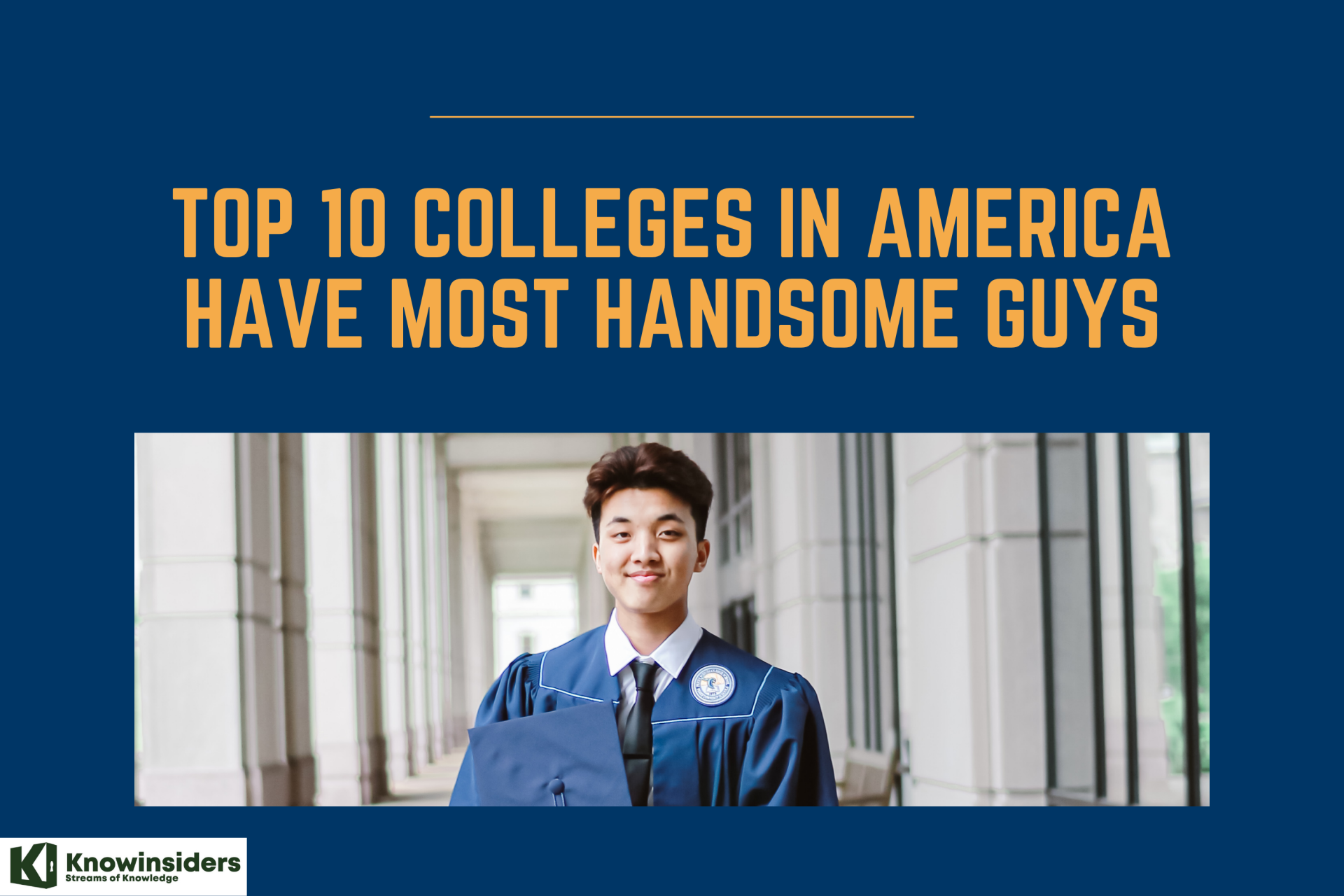Do Legal and Undocumented Immigrants Get Free Tuition College in the US?
 The Paradox of College Tuition and Student Dropout in the US The Paradox of College Tuition and Student Dropout in the US |
 Top 20+ Colleges in the US Where Students Don’t Pay Tuition Top 20+ Colleges in the US Where Students Don’t Pay Tuition |
 |
| The undocumented immigrant students in the US |
| Contents |
First off, there are a lot of colleges your kid can attend in the US right now. In many states, immigrants of any status—including those without documentation—can attend college.
Many high school students in the U.S. are unaware of all the options available to them for continuing their education after leaving the public system if they or their parents are immigrants. Many people are also not aware of programs that offer free tuition, scholarships, and potential financial aid.
The National Immigration Law Center publishes a very thorough account of the regulations governing immigrant college students.
Immigrant Students in the US: Legal, But Not Easy
Making a college education financially accessible to all students—at least, those who are willing to put in the effort to get themselves there—has many positive effects on society, despite the misconceptions of some.
17 states have passed laws granting in-state college tuition status to immigrant students who meet certain requirements and are at any stage of the citizenship process.
These states include California, Colorado, Connecticut, Florida, Illinois, Kansas, Maryland, Minnesota, Nebraska, New Jersey, New Mexico, New York, Oklahoma, Oregon, Texas, Utah, and Washington State.
A non-citizen student must submit an application for Deferred Action for Childhood Arrivals (DACA), an immigration program established by the Obama administration in June 2012.
Receiving in-state status is also contingent on the student completing two or more years of high school there, coming from a low-income family (the precise annual income varies by state), and promising to apply for citizenship as soon as possible. For immigrants to study in other states, they will require an F-1 student visa.
| Public high schools in the United States graduate about 98,000 undocumented immigrants annually. Less than 10% go on to attend college, and even fewer finish their studies and receive a degree. |
Where Is College Free for Immigrant Students?
Even with legal immigration status, many immigrant students may worry about going to college after graduating from high school. For instance, the Immigrant Responsibility Act has instilled a sense of status anxiety in many immigrants. Even students who have a legal right to remain in the country are concerned about being expelled.
Many states are passing legislation that will provide in-state citizens with free community college access. Some people take part in the Promise program, which is largely supported by lottery profits from that state. Every state on the list above has passed or is attempting to pass legislation that will provide low-income high school graduates with free tuition to two-year community colleges, though the list is expanding.
The first states to finish this comprehensive legislation are New York and New Mexico, with Washington State, Minnesota, and Texas closely behind. Students who gain in-state standing as a result of this legislation may be eligible for free community college tuition if they continue to put in the effort through high school and beyond.
These uplifting programs that are spreading across the nation demonstrate that the American dream is still a reality and that hard work is still rewarded in this country.
Who are the Undocumented Immigrant Students?
Undocumented immigrants may have lived in the country for years, but it is unclear what their legal situation is. Many of them now feel as though they have no future in the nation as a result of this.
According to the Presidents' Alliance on Higher Education and Immigration's most recent analysis, undocumented students make up about 2% of the country's higher education population. Undocumented students are required to submit a Social Security number, just like everyone else who applies for federal student financial aid.
Despite the lack of federal aid, there are still ways for undocumented students to pay for college, such as scholarships and, in some cases, state aid.
But funding opportunities differ based on a student's immigration status, such as whether they are DACA recipients, and state of residence.
Undocumented immigrants who entered the country prior to the age of 16 are given temporary work permits and are shielded from deportation under the DACA policy.
After Congress rejected the DREAM Act, President Barack Obama issued an executive order in 2012 establishing DACA as a temporary solution. The program was terminated in 2017 after President Donald Trump declared it to be illegal. Federal appeals courts ultimately agreed and halted new applications while allowing DACA recipients to renew their status.
Where Undocumented Immigrant Students Can Get Free Tuition College?
 |
| DACA and Undocumented Students |
Undocumented immigrants may be able to attend college with some restrictions and limitations, depending on the laws and policies of their state. California, Texas, Illinois, New York, Florida, and Massachusetts are the states where undocumented immigrants can enroll in college the most frequently.
Students from undocumented backgrounds who attend college stand to gain better job opportunities and a postsecondary degree rather than just a high school diploma. Additionally, it gives them a chance to maximize their resources in the hopes that, later in life, they will be able to legally reenter the country with their degrees and find employment there. Additionally, many colleges and universities in the US offer scholarships that are only open to DACA recipients or undocumented students who plan to pursue a higher education.
Undocumented immigrants may face many challenges along the way to citizenship, including the H1-B visa application process and the green card application process. The DREAM Act may make it possible for people who are unable to wait and who want to live in the US permanently but do not want to go through the formal process of becoming citizens to get a visa. Former President Barack Obama signed this bill into law, allowing those who entered the country before turning 18 and have lived there for five continuous years while also graduating from a U.S. school.
♦ Unauthorized immigrant students can attend public universities in seven states for in-state tuition thanks to state legislation in seventeen states and the District of Columbia.
♦ In order to permit some unauthorized immigrant students to receive in-state tuition benefits, 17 state legislatures - California, Colorado, Connecticut, Florida, Illinois, Kansas, Maryland, Minnesota, Nebraska, New Jersey, New Mexico, New York, Oregon, Texas, Utah, Virginia, and Washington—as well as the District of Columbia—passed legislation.Generally speaking, these laws demand enrollment in and graduation from state high schools, admission to a state college or university, and a promise to apply for legal status as soon as one is qualified.
♦ At least seven state university systems—including the University of Hawaii Board of Regents, the Kentucky Council on Postsecondary Education, the University of Maine Board of Trustees, the University of Michigan Board of Regents, the Ohio Board of Regents, the Oklahoma State Regents for Higher Education, and the Rhode Island Board of Governors for Higher Education—have policies in place to grant undocumented immigrants in-state tuition rates.
♦ Delaware has thought about legislation but hasn't passed it, but the University of Delaware and Delaware Technical Community College allow undocumented students to be eligible for in-state tuition and financial aid.
♦ Laws allowing certain immigrant students, such as those with Deferred Action for Childhood Arrivals (DACA), to be eligible for financial aid were passed in Connecticut, Maryland, New Jersey, Oregon, and Washington in 2018. DACA students or people with federal work permits were eligible for in-state tuition in Arkansas in 2019. In 2020, Virginia made it possible for students to receive in-state tuition regardless of their nationality or immigration status if they met certain requirements. The requirements include finishing at least two years of high school in Virginia, graduating, and getting accepted to a college or university. Students must have paid Virginia income tax for the previous two years, or their parents if they are dependents.
♦ Certain undocumented immigrant students, including DACA students, are eligible for state financial aid from at least eleven states, including California, Connecticut, Hawaii, Maryland, Minnesota, New Jersey, New Mexico, New York, Oregon, Texas, and Washington.
♦ Utah is one of the states that permits public universities to use private funding to support financial aid for undocumented immigrant students.
♦ Alabama, Arizona, Georgia, Indiana, Missouri, and South Carolina are the six states that forbid undocumented immigrants from receiving in-state tuition benefits.
Many students need financial aid and state support to go to college, particularly undocumented immigrants.
♦ Only undocumented students with federal work permits or DACA Dreamer status are eligible for in-state tuition in Arkansas. Undocumented students are eligible for in-state tuition at two universities in Delaware: the University of Delaware and Delaware Technical Community College.
♦ Regardless of their nationality or immigration status, some students in Virginia are entitled to in-state tuition rates. These students must have completed at least two years of high school in Virginia, graduated, and gained admission to a university. Additionally, students' parents or guardians must have paid Virginia income tax for the previous two years.
♦ The following states permit DACA students to apply for both federal and state financial aid:
Connecticut
Maryland
New Jersey
Oregon
Washington
♦ Additionally, some states provide financial aid to undocumented but otherwise qualified students regardless of immigration status:
California
Connecticut
Hawaii
Maryland
Minnesota
New Jersey
New Mexico
New York
Oregon
Texas
Washington
 Top 10 Weirdest & Unique Colleges in the US Top 10 Weirdest & Unique Colleges in the US |
Where Undocumented Immigrants May not be Allowed to Attend Public Colleges?
Undocumented immigrants may, however, be admitted to private universities even though they may not be permitted to enroll in public colleges or universities or qualify for student financial aid in some states. Private scholarships for young immigrants with ambiguous legal status may also be earned by them.
In fact, some colleges with a social justice focus have been designated as "sanctuary colleges" for undocumented students, promising to shield these students from harassment and deportation regardless of federal law. In actuality, federal laws permit organizations to treat a student's immigration status as privileged personal data. The following private and public institutions are examples of "sanctuary campuses":
California Community College
California State University
Connecticut College
Delaware Technical Community College
Drake University
Iowa State University
Pitzer College
Portland State University
Reed College
Rutgers University
Santa Fe Community College
Swarthmore College
University of Pennsylvania
Wesleyan University
These decisions are a crucial first step in establishing a more equitable and inclusive society that enables everyone to realize their full potential. Making their parents proud is a goal shared by many undocumented students, so legal immigration status shouldn't be an impediment.
New York Free Tuition Program To Be Extended to DreamersThe governor of New York stated in his proposed budget for FY 2019 that students who are illegal immigrants would be eligible for the state's free tuition program. However, the briefing explains that each year, "many talented students who graduate from New York high schools remain unable to fulfill their potential simply because they cannot afford the tuition and lack access to tuition assistance to help pay for school." It is stated that illegal immigrants have been accepted for in-state tuition at the State University of New York (SUNY) and the City University of New York (CUNY) since 2002. In 2017, Governor Cuomo introduced a plan to make SUNY and CUNY tuition free. For the 2018–2019 academic year, residents with family incomes under $110,000 are eligible for the option. According to his FY '19 budget briefing, he's moving the goalposts by offering free education under his "Excelsior Scholarship Program" to students who are living in the country illegally starting in 2022. According to the DREAM Act, making an investment in the future of young immigrants also benefits New York. According to the act, undocumented students will now be able to apply for the new Excelsior Scholarship, the Tuition Assistance Program, and other state-managed scholarships. Cuomo made his record of reestablishing fiscal responsibility, accomplishing historic advancements, and bolstering middle-class New Yorkers public during the Executive Budget Address. |
How Undocumented Immigrant Students Can Find and Get Free Tuition College?
 |
| Undocumented Students in Higher Education |
1.Search, Utilize Support and Resources
For institutional scholarships and grants, many colleges don't require students to be citizens or permanent residents, according to experts. But because state and college policies differ, undocumented students should do their research.
You can also take independent action to keep yourself informed and connected. Start by using these tools. A wealth of contacts, advocacy networks, educational materials, legal action hotlines, scholarships, and community organizations can be accessed through these resources. Do your own research to find comparable resources in your area as this list is not all-inclusive.
Beyond federal grants, undocumented students should look into local scholarships, such as those provided by churches or community groups. Students are advised by experts to begin their scholarship search as early as possible and to keep doing so each year that they are enrolled in college.
♦ American Immigration Lawyers Association (AILA)
In addition to providing updates on legislative changes, executive actions, and both judicial and advocacy-based efforts to protect Dreamers, AILA covers the history and recent policy changes that have an impact on Dreamers.
Website: www.aila.org
♦ Legal Match
You can find and get in touch with immigration attorneys who specialize in your case needs using the search engine Legal Match.
Website: https://www.legalmatch.com/immigration-lawyers.html
♦ Education Equity Program
The Education Equity Program from United We Dream offers education-specific support for Dreamers, as well as opportunities for educational advancement.
Website: https://unitedwedream.org/
♦ TheDream.us
TheDream.us provides scholarships for Dreamers, assisting DACA recipients in utilizing their legal status to pursue opportunities in higher education.
Two scholarships are offered by TheDream.US. Undocumented students can receive up to $16,500 for an associate degree and $33,000 for a bachelor's degree through one of them, the renewable National Scholarship. Among other requirements, applicants must have "significant unmet financial need" and be qualified for in-state tuition at one of TheDream.US' partner institutions. They must also have entered the country before the age of 16 and before November 1, 2017.
Website: https://www.thedream.us/
♦ Immigrants Rising
An organization of educators, administrators, and other education professionals called Immigrants Rising, formerly known as Educators for Fair Consideration, is committed to defending and advancing the rights of immigrant and undocumented students.
Website: https://immigrantsrising.org/
♦ The American Immigration Council
The American Immigration Council uses the courts to demand and ensure fair judicial process for immigrants and undocumented residents.
Website: https://www.americanimmigrationcouncil.org/
2.Apply for State Financial Aid with Challenging
Financial and administrative difficulties, such as filling out the Free Application for Federal Student Aid (FAFSA), are faced by undocumented students. If you don't have DACA status, these difficulties are significantly more severe.
During the application process, some colleges ask students for their Social Security number, a current driver's license, or a state ID. Undocumented students without DACA status are likely to lack the necessary documentation, whereas DACA recipients frequently do.
Federal financial aid is not available to any undocumented students, including DACA recipients and immigrants who do not qualify. However, each state and university may offer financial aid to undocumented students, frequently based on individual need.
Filling out your FAFSA form can help DACA recipients determine their eligibility for financial aid from their state or their university. It can also assist you in preparing your scholarship application for non-profit funding.
Students who need financial assistance for their education can apply for loans, work study opportunities, and federal grants by completing the Free Application for Federal Student Aid (FAFSA) form. The FAFSA form may be used to help you qualify for state or college financial aid even though all undocumented students are ineligible for federal student aid.
You might be worried that submitting the form will give Immigrations and Customs Enforcement (ICE) reason to investigate you or your family. However, the Family Educational Rights and Privacy Act (FERPA) sternly safeguards student data privacy. School administrators are not permitted to provide that information to immigration enforcement, claims Michelle Lapointe, an attorney with the Southern Poverty Law Center. Additionally, the FAFSA application does not inquire about your parents' situation.
Standardized tests, like the ACT or SAT, that show colleges and universities how prepared you are for postsecondary education, are one thing you don't have to be concerned about. Students are not required to submit their social security number for the ACT or SAT.
3.Take Advantage of In-State Tuition
According to the Higher Ed Immigration Portal, 23 states and Washington, D.C. have policies that allow DACA recipients and undocumented students access to in-state tuition as well as some state aid or scholarships. Five states, including DACA recipients, are prohibited from receiving in-state tuition or state financial aid: Missouri, New Hampshire, North Carolina, Tennessee, and Wisconsin. The remaining states either support undocumented students in varying degrees or do not have a formal policy in place.
Undocumented students typically need to be enrolled in a school in the state for a specific number of years and graduate from high school or earn a GED in the state in order to be eligible for in-state tuition in some states. According to experts, undocumented students can speak with their high school guidance counselor or a college's financial aid office if they have any questions about the financial aid procedure.
♦ Check More: Top 20+ Colleges in the US Where Students Don’t Pay Tuition
In Conclusion
Undocumented immigrants who entered the country as children can use DACA to obtain legal status, pursue educational and employment opportunities, and stay protected from legal repercussions until the DREAM Act is passed.
However, uncertainty is a huge issue for undocumented students in the US. Unpredictable changes in U.S. immigration laws add to the difficulty of assimilating into a new culture, getting a handle on a foreign land, learning the language, and navigating a new campus for immigrant families and young people.
 Top 10 Colleges in the USA With the Most Beautiful Girls Top 10 Colleges in the USA With the Most Beautiful Girls Here are the top 10 colleges in the US that are also the best place to find female students with beauty and brains! |
 Top 10 Colleges in the USA Have Most Handsome Guys Top 10 Colleges in the USA Have Most Handsome Guys It seems not surprising that a new survey has ranked the colleges with the hottest guys. Scroll down to look at the hottest and most ... |
 Top 30 Best Value Colleges in the U.S 2023/2024 Top 30 Best Value Colleges in the U.S 2023/2024 In this post, let's explore the colleges that provide the best value for your money in the United States based on academic quality, outcomes, net ... |























